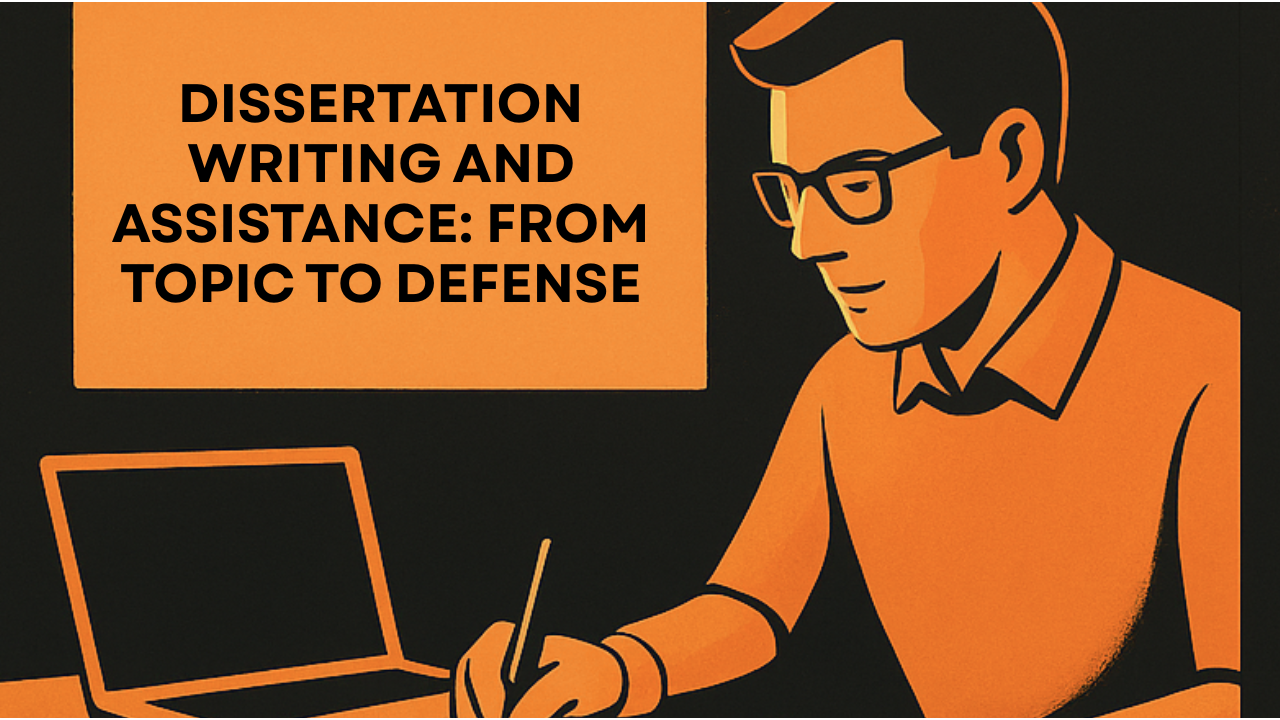Understanding the Dissertation Process
The dissertation process is crucial in higher education, marking the peak of academic study. It offers chances and challenges as students show their ability to research independently and add to their field. This involves thorough research, planning, and analysis. Knowing the process helps tackle dissertation complexities. Professional editing services boost your work’s quality, meeting institutional standards. Skilled editors enhance writing by understanding structure, style, and ethics.
Definition and Purpose of a Dissertation
A dissertation is a substantial piece of academic writing that reflects a student’s research and findings on a specific topic. This scholarly endeavor is usually required for the completion of a doctoral degree, though master’s programs might also include a dissertation requirement. The purpose of a dissertation is to demonstrate a candidate’s proficiency in their chosen field of study by contributing original insights or analyses to the academic discourse. It is an opportunity for students to display their understanding, methodological skills, and ability to conduct scholarly research. More than just a research project, a dissertation is a testament to a student’s ability to synthesize information and develop new perspectives that can inform future academic journal articles or practical applications.
Key Stages in Dissertation Writing
The dissertation journey involves several essential stages. Understanding these stages helps manage the process efficiently to create a coherent document. Initially, formulating a research question requires a clear grasp of the field. After selecting a topic, an extensive literature review identifies knowledge gaps. The research design phase follows, outlining the methodological approach and dissertation structure. Rigorous adherence to ethical standards is crucial during research and data collection. Analyzing data involves interpreting findings against existing literature. Writing involves iterative editing and proofreading to enhance content and correct errors. Compiling findings requires meticulous reference list checks for academic integrity.
Developmental editing ensures professional standards. An editing certificate confirms readiness for submission. Effective planning and resources allow students to navigate this process and produce scholarly work.
Choosing a Dissertation Topic
Choosing the right dissertation editing and writing service is paramount for achieving academic excellence and integrity. To find a service that aligns with your specific needs, consider the following guidelines:
- Editor’s Experience: Look for editors with extensive experience in dissertation editing and academic writing. Ensure their expertise matches your field of study for optimal relevance.
- Turnaround Times: Evaluate how quickly the service can return your edited dissertation. This is crucial if you are working with tight deadlines.
- Service Offerings: Determine if the service includes comprehensive options like proofreading, developmental editing, and substantive editing. This will ensure your dissertation meets high academic standards.
- Reputation and Reviews: Read reviews and inquire about the editor’s years of experience. This provides insights into their reliability and quality.
- Ethical Standards: Confirm that the service adheres to ethical standards, ensuring your academic integrity is maintained.
- Additional Features: Check if they provide an editing certificate or expertise in handling reference list entries and sentence structure for complete dissertations.
Making a thoughtful choice will help you craft a dissertation that upholds the highest academic standards and meets your institution’s style guidelines.
Crafting the Dissertation Proposal
A dissertation proposal is an essential part of the academic journey, laying the groundwork for a research project by defining its scope, significance, and methodology. Crafting a compelling proposal requires adhering to strict academic guidelines and conventions. Dissertation proposal editing services are critical in this process, as they ensure that the document meets institutional standards and is articulated with clarity and coherence. Subject matter experts often undertake the editing to guarantee accuracy in language and content, matching the proposal’s intricacies with their extensive academic knowledge. Enhanced proposals undergo rigorous checks for sentence construction, grammar, punctuation, and consistency. Editorial professionals also address various formatting requirements, such as adhering to APA style, ensuring alignment with institutional or publication standards. Through the collaboration of experienced editors, successful dissertation proposals blend linguistic expertise with profound knowledge of the relevant academic subject area.
Components of a Successful Proposal
A successful dissertation proposal includes key components that convey the project’s essence and feasibility. The introduction identifies the research problem and highlights its significance in the field, clearly stating research questions or hypotheses. The literature review positions the proposal within existing research, identifying gaps it aims to fill and demonstrating the researcher’s knowledge. The methodology section describes the study’s design, detailing feasible and justified methods to achieve project goals. Editors ensure it aligns with the research questions. Lastly, the conclusion and timeline summarize the proposal, including expected outcomes and a realistic timetable, highlighting the proposal’s viability and readiness for the study.
Tips for Writing a Clear Proposal
When writing a clear dissertation proposal, clarity and precision are paramount. Begin by thoroughly understanding the research problem and formulating clear research questions. These questions guide the proposal’s structure and content, ensuring every section relates coherently to the main objectives.
It’s crucial to maintain concise and straightforward writing while delving deeply into the subject matter. Avoid jargon and unnecessary complexity, which can obscure meaning. Editors can assist by enhancing clarity and coherence, ensuring ideas are communicated effectively.
Adhering to the appropriate formatting and citation style, such as APA, is vital for maintaining academic integrity. Consistency in style and careful attention to reference list entries not only reflect professionalism but also bolster the proposal’s credibility. Finally, seek feedback from peers or advisors to gain diverse perspectives and insights into improving the proposal’s quality. Engaging with experienced dissertation editors can bring additional benefits, as they provide expert advice on sentence structure, academic standards, and style guidelines to fine-tune the proposal’s presentation.
Conducting Research Effectively
Conducting effective research is essential for academic success and informed decision-making, whether you’re a student working on a thesis or a professional exploring project options. A structured approach begins with clear objective identification, helping create a research roadmap. Choosing appropriate research methods—quantitative, qualitative, or mixed—depends on your study’s goals and field, ensuring valuable insights while maintaining ethical standards. Systematic data collection should use reliable sources and correct sampling to guarantee accuracy. Analyzing data involves recognizing patterns through suitable statistical tools or thematic analyses, leading to insightful conclusions. Essentially, attention to detail in collecting and analyzing data enhances the validity of your research and supports contributions to your academic or professional domain.
Writing the Dissertation
Crafting a dissertation demands precision and clarity while meeting high academic standards, showcasing a student’s expertise. Dissertation editing refines drafts to enhance clarity, coherence, and language precision, ensuring they meet style guidelines and include accurate data analysis. Effective structuring of chapters and editing ensures logical flow and coherence within academic standards.
A compelling introduction presents the research question and significance, setting the stage for the research. Professional editing refines clarity and coherence, making it engaging. A concise literature review balances summary with critical analysis, highlighting gaps addressed by your work, with editing services enhancing depth and logical flow.
The results and discussion sections should present findings and implications objectively, with editing improving data presentation and readability. A strong conclusion emphasizes research significance, suggests future work, and acknowledges limitations, with editors ensuring a structured and professional finish.
Editing and proofreading are crucial in academic writing to refine language, grammar, and structure according to style guidelines. Professional editing elevates clarity and coherence, while proofreading tools catch errors. Engaging professional editing services ensures a meticulously crafted, error-free dissertation, contributing significantly to the academic field.
Finalizing the Dissertation
Completing a dissertation is a major achievement, and the final step is ensuring it meets academic writing standards. This involves thorough proofreading to eliminate errors and improve spelling, grammar, and punctuation to meet scholarly expectations. Adhering to style guidelines like APA is crucial, typically requiring 3–5 business days for editing, so plan ahead for deadlines. Proper citation formatting, such as APA or MLA, is vital for maintaining integrity. Reference lists must match in-text citations for consistency. Dissertation services help ensure every citation meets academic standards. Lastly, ensure the dissertation complies with all institutional guidelines, including originality and ethical standards, to safeguard its integrity. Editors provide crucial oversight to meet these criteria and ensure successful submission.
Reference and Citation Formatting
In academic writing, proper reference and citation formatting are vital for lending credibility and avoiding any claims of academic misconduct. Each source used in the dissertation should be accurately cited and listed in the reference section according to the prescribed academic style. This includes not just traditional sources like books and journals but also online resources and other media. Ensuring that in-text citations match the reference list entries in format and content is crucial. Professional dissertation editing services specialize in these details, helping to ensure that the work meets the rigorous standards required.
Checking for Academic Compliance
Academic compliance ensures that a dissertation not only addresses its research questions effectively but also adheres to ethical and institutional guidelines. This involves a detailed examination of the dissertation for any deviations from ethical standards, such as plagiarism. A thorough compliance check includes reviewing the dissertation against the academic standards specific to the field of study. Professional editing services offer an experienced perspective, ensuring that all components of the dissertation, from the literature review to the conclusion, align with these standards. This holistic review helps reinforce the credibility and ethical integrity of the research presented in the dissertation.
Expert Assistance and Consulting Services
For students embarking on the challenging journey of completing their dissertations, expert assistance and consulting services offer invaluable support. These services are designed to provide tailored assistance in editing, formatting, and data analysis, all conducted by PhD-educated professionals. Unlike automated tools, these services ensure personalized, one-on-one collaboration, guiding students through every stage of their dissertation development.
Service providers like ServiceScape stand out by allowing students to choose editors who are experts in their academic field, aligning with research goals and maintaining high academic standards. They offer fast turnaround times, sometimes just 3 to 4 days, ensuring that quality is never compromised. Confidentiality is a top priority, guaranteed by Non-Disclosure Agreements, so personal and project details remain secure and private.
In summary, these services bridge the gap between initial drafts and polished work, enhancing sentence structure, compliance with style guidelines, and eliminating typographical errors—ultimately helping students achieve academic success.

